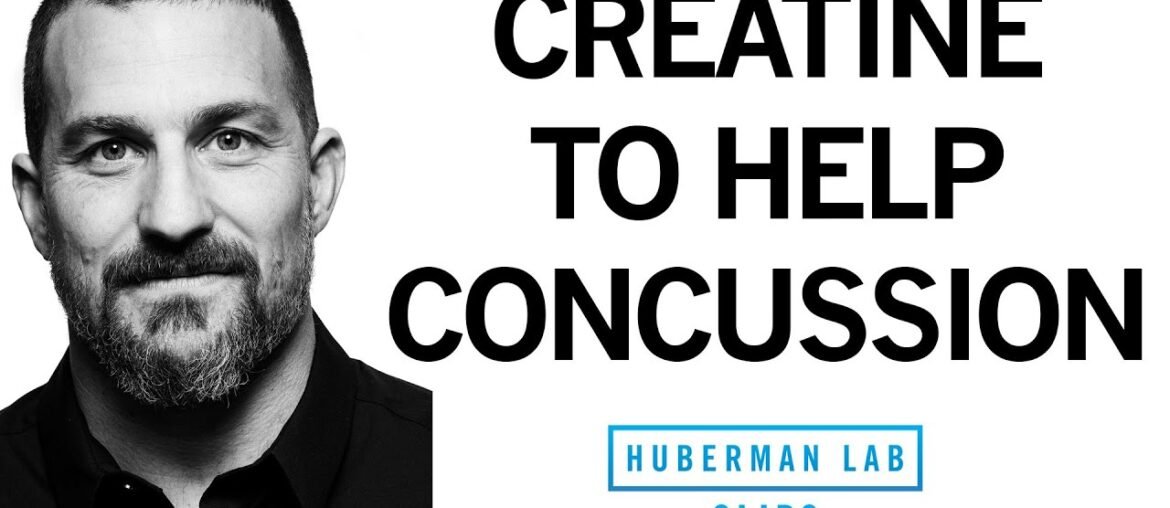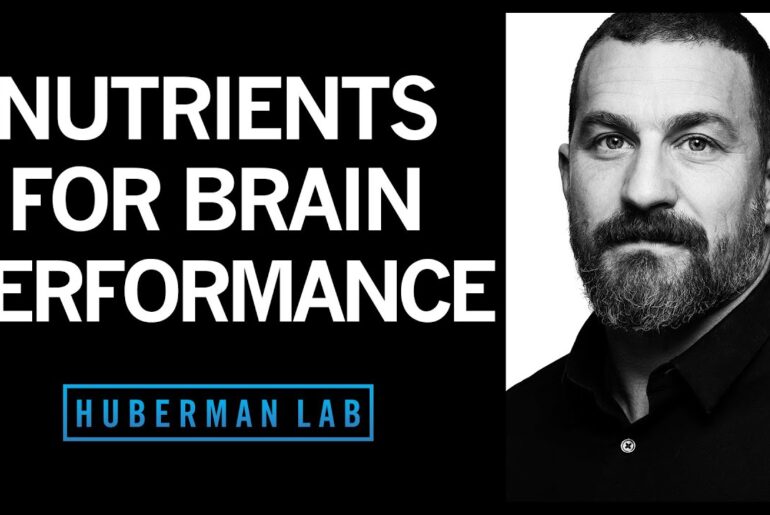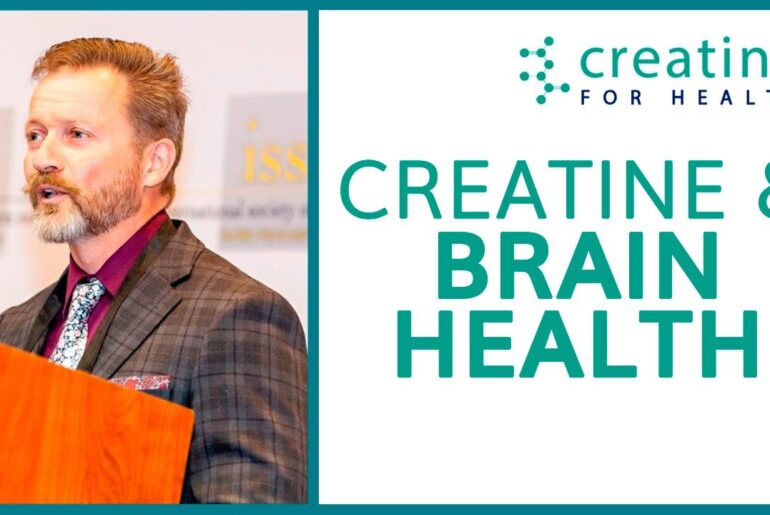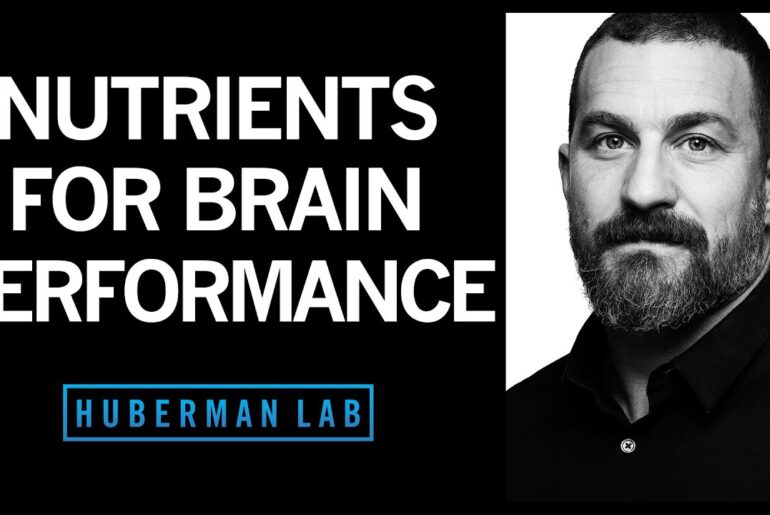
Did you know that the human brain can consume approximately 20% of the body’s total energy reserves, despite making up only about 2% of its weight? In the constant quest for mental clarity and optimal cognitive function, I have discovered a surprising ally in the fight against mental fatigue: creatine. Known mostly for its popularity in the fitness world, creatine’s benefits extend well beyond muscular endurance. It appears this powerhouse supplement can also enhance cognitive function and boost brain performance.
My interest in this subject stems from a growing body of research indicating that a mere 8 g/day creatine supplement over the span of 5 days may not only diminish the feelings of brain fatigue but also increase cerebral oxygenation. This is a promising lead for anyone looking to maintain mental clarity and cognitive efficiency amidst our mentally strenuous lifestyles. And as I delve into the latest findings, I find the potential of creatine for reducing mental fatigue to be particularly intriguing.
Key Takeaways
- Creatine supplementation can significantly reduce mental fatigue and enhance mental performance.
- Increasing brain creatine content has been associated with improved cognitive function and brain performance.
- A dosage of 8 grams of creatine per day may increase cerebral oxygenation, aiding in sustained mental clarity during demanding tasks.
- Creatine’s effects go beyond muscle-building – it’s a potent supplement to boost brain performance.
- Research suggests that creatine could be a valuable tool for cognitive enhancement in mentally exhausting situations.
Understanding Mental Fatigue and Cognitive Decline
Mental fatigue is more than just a fleeting sense of tiredness; it is the tangible depletion of cognitive resources over time. It’s that dense fog creeping over the mind after hours of intense focus or the undercurrent of exhaustion from juggling too many tasks without a break. To truly address how we can reduce mental fatigue and enhance our cognitive capacity, it’s integral to dissect its roots and grasp its impact on life’s various facets.
Defining Mental Fatigue: Performance and Exhaustion
When I talk about mental fatigue, I refer to the performance decline after extended periods of demanding cognitive activity. It’s the point where the brain seems to hit a wall, and maintaining mental focus improvement becomes a struggle. The idea is not just anecdotal; it’s a scientifically observed phenomenon where even simple tasks become daunting, making the search for brain fatigue reduction methods more crucial than ever.
The Biochemical Mechanisms Behind Mental Fatigue
The exploration of what fuels mental fatigue leads down a complex biochemical pathway, yet one compound emerges as particularly noteworthy: creatine. Known for its muscle-boosting properties, its role in cognitive enhancement is equally impressive. It serves as a sort of energy reservoir, ensuring that our neural processes have the vitality they need to keep going. It’s like having an energy backup generator in the brain, empowering sustained cognitive activity.
Assessing the Impact of Mental Fatigue on Daily Life
Mental fatigue is not confined to the realm of abstract thought; its tendrils extend into the very fabric of our daily existence. It can transform a productive workday into a slog or sap the joy from social interactions. The gravity of these effects highlights the importance of combating mental fatigue and underscores why effective cognitive enhancers are more than luxury—they are a necessity for maintaining quality of life.
My journey across the cognitive landscape suggests that creatine’s potential for reducing mental fatigue and facilitating mental focus improvement is vast. As we progress further into a world where mental exertion is commonplace, unlocking the potential of such cognitive enhancers becomes not just beneficial but essential.
Creatine: An Overview of Its Cognitive Function Support

My investigation into the role of creatine in supporting cognitive function has revealed intriguing insights into its potential as a natural energy booster and its abilities to enhance overall brain performance. Particularly compelling is creatine’s fundamental part in the intricate dance of energy metabolism, where it helps sustain the brain’s high demand for ATP, the energy currency of cells.
The Role of Creatine in Energy Metabolism
The significance of creatine in the body’s energy metabolism cannot be overstated. In my exploration, I’ve discovered that creatine’s main purpose is to store and transport energy in the form of high-energy phosphate groups. This energy shuttle system is crucial for maintaining a steady supply of ATP, especially in tissues with high energy demands such as the brain and muscles.
Increasing Brain Creatine Content: Effects on Cognitive Enhancement
Offering further credence to creatine’s merits, I’ve learned that an increase in brain creatine content, facilitated via oral supplementation, can notably boost cognitive performance. By augmenting energy metabolism within the brain, creatine fortifies cognitive processes, supporting enhanced memory function and potentially mitigating the cognitive decline that can accompany aging or occur under metabolic duress. It is this capacity for cognitive function support that positions creatine as a viable option for those seeking to maintain sharp mental faculties.
| Brain Function | Impact of Increased Creatine |
|---|---|
| Memory Performance | Enhanced recall and faster memory retrieval |
| Energy Metabolism | Increased phosphocreatine resynthesis during high-demand tasks |
| Cognitive Endurance | Improved performance over prolonged periods of mental activity |
| Aging-Related Decline | Potential to counteract the effects of age-related metabolic stress |
As I delve deeper into this topic, the body of evidence consistently aligns creatine with improved brain performance. It’s becoming more apparent to me that creatine stands as a candidate par excellence among natural supplements championing cognitive function support and protection against mental fatigue.
Scientific Studies on Creatine for Reducing Mental Fatigue
The pursuit to reduce mental fatigue and augment cognitive performance has led to a surge of interest in nutritional supplements that can provide a cognitive edge. One such compound that has been rigorously studied is creatine – a molecule poised at the crossroads of cognitive enhancement and energy metabolism. In my exploration of the scientific landscape, I have come to understand creatine’s potential in fostering mental clarity enhancement and improving mental focus.
The Pioneering Research on Creatine and Mental Task Performance
Initial forays into the cognitive effects of creatine revealed it as a possible arbiter of enhanced mental performance. Particularly pronounced were its effects in scenarios featuring increased mental strain, such as sleep deprivation or substantial cognitive workload. These studies lay the groundwork for understanding how creatine could serve as a tool for mental focus improvement, suggesting that it could bolster one’s capacity to execute tasks requiring sustained mental effort.
Creatine Administration: A Closer Look at Cerebral Hemoglobin Oxygenation
Subsequent investigations delved deeper into the biological underpinnings of creatine’s role in cognitive enhancement. A particularly intriguing aspect of this research revolved around cerebral hemoglobin oxygenation, a metric indicative of the brain’s energy use and activity level. Utilizing near-infrared spectroscopy (NIRS), scientists unearthed that creatine supplementation might curb the spike in deoxygenated hemoglobin linked to mental fatigue, thus potentially raising one’s threshold for sustained cognitive exertion and endorsing the compound’s utility in mental clarity enhancement.
While the avenues of inquiry into creatine’s effects on cognitive function are promising, ongoing research is essential to fully unravel the potential applications of this dietary supplement. My analysis remains committed to unveiling the extent of creatine’s capacity to enhance cognitive function and deliver a respite from the cognitive decline associated with lifestyle and environmental stressors.
Exploring the Mind-Boosting Benefits of Creatine

As someone deeply invested in the enhancement of cognitive function and overall brain health, I’ve thoroughly examined the role of creatine as a mind-boosting supplement. Through rigorous analysis of research studies, it’s become increasingly apparent that creatine serves as a cornerstone supplement for those seeking cognitive function support. Below, we delve into the natural energy-boosting properties of creatine and its potential to sharpen mental acuity.
Creatine as a Natural Energy Booster for the Brain
From neuroscientists to nutritionists, experts are recognizing creatine’s unique properties as an organic molecule capable of elevating brain energy levels. It is important to acknowledge that the brain, although small in mass, consumes a disproportionately high amount of energy. Hence, a supplement that supports energy availability can be crucial for maintaining cognitive stamina and efficiency. This is precisely where creatine shines, providing an energy reservoir that keeps the brain operating optimally, particularly under duress.
Research Insights: Enhancing Mental Focus and Clarity
Delving into the multifaceted world of cognitive enhancement, various studies pinpoint creatine’s benefits beyond just physical endurance. Investigations have illustrated that creatine supplementation can lead to notable enhancements in faculties such as short-term memory and intelligence—an effect that seems especially potent for those facing sleep deprivation or high-stress situations. These attributes make creatine an invaluable resource for a wide array of individuals, from students cramming for exams to professionals tackling demanding projects.
In my professional journey, I’ve come across numerous supplements, but creatine occupies a special place in the realm of nootropics. Its benefits extend across the spectrum of brain health metrics. To illustrate these points, let me share a comprehensive comparison of the cognitive benefits attributed to creatine use:
| Cognitive Domain | Impact of Creatine Supplementation |
|---|---|
| Memory | Improves short-term memory and recall speed |
| Focus | Enhances concentration and reduces distractions |
| Intelligence | Associated with increased reasoning and problem-solving abilities |
| Energy Metabolism | Boosts brain cell energy production for sustained cognitive tasks |
Ensuring that my readers are well-informed, I emphasize that while the benefits are clear, individual experiences with creatine may vary, highlighting the necessity of a personalized approach to supplementation, tailored to one’s diet, lifestyle, and cognitive demands.
As a mind-boosting supplement, brain health ally, and cognitive function support, creatine stands as a testament to the potential of targeted nutritional interventions in enhancing mental faculties.
Creatine Supplementation: Dosage and Administration
As someone deeply interested in the quest for cognitive enhancement and mental clarity enhancement, I understand that the journey toward achieving optimal brain function includes not only understanding supplements such as creatine but also mastering their effective use. In this article, I’ll explore the recommended dosages of creatine that research suggests are supportive of cognitive health, as well as provide tips for optimizing its uptake for enhanced brain performance.
Recommended Dosage for Cognitive Benefits
Studies indicate a range of effective dosages, but for those pursuing cognitive enhancement, consistency in dosing appears to be key. The most frequently cited range is between 5 to 20 grams per day, which has been observed to increase brain creatine content successfully. Nevertheless, individual needs may vary, and it is often recommended to adjust this dosage corresponding to factors such as dietary habits and lifestyle.
Optimizing Creatine Uptake for Brain Performance
Anecdotal and research-backed evidence promotes a phased approach to creatine supplementation for maximizing cognitive benefits. Initiating supplementation with a loading phase, which typically involves a higher intake for the first week, followed by a maintenance phase, can saturate the muscles and brain with creatine, potentially leading to improved mental clarity and cognitive capacity. For vegans and vegetarians, who may start with lower levels of creatine, this form of supplementation could have a particularly pronounced impact on cognitive function.
It’s essential to point out that while I share this information, I encourage my readers to consider personal health conditions and dietary requirements and possibly consult with a healthcare provider when incorporating new supplements into their regime. The pursuit of enhanced cognitive function through creatine use is a personal journey, and what works for one may not be perfect for another.
Potential Side Effects and Considerations

When considering supplements for cognitive function support and mental fatigue reduction, it’s essential to critically evaluate both their efficacy and safety. In my experience and extensive research into the use of creatine, I’ve found that while the substance is widely acclaimed for its benefits to brain health, there are also potential side effects that must be considered.
Evaluating the Safety Profile of Long-Term Creatine Use
Long-term consumption of creatine is a topic of interest for many individuals seeking to maintain cognitive sharpness. Fortunately, a substantial number of clinical trials provide reassurance regarding its safety. However, I always advise that individuals consult with healthcare providers to understand the implications of creatine on their unique health profiles.
Discerning Between Myths and Clinical Evidence
In the realm of dietary supplements, especially those promising to support cognitive function, it’s not uncommon to encounter myths. Creatine, despite being one of the most researched supplements, is not exempt from such misconceptions. Yet, clinical evidence frequently upholds creatine’s reputation as a well-tolerated aid for brain health, with a low incidence of side effects when used within recommended guidelines.
Here is a table that illustrates some of the common concerns compared to what studies have shown:
| Common Concern | Clinical Findings |
|---|---|
| Kidney Damage | No substantial evidence when used at recommended dosages |
| Dehydration | Lack of correlation with increased risk when adequately hydrated |
| Muscle Cramping | Studies suggest no increase in incidence with creatine use |
| Digestive Issues | Occurs in some individuals, often associated with high dosage intake |
I must emphasize the importance of addressing these considerations responsibly and reiterate that while creatine has promising potential for brain health, it should be integrated into a lifestyle that prioritizes well-rounded cognitive function support.
Creatine for Brain Health Across Different Populations

When exploring the nutritive landscape seeking to enhance brain performance, one supplement has been consistently spotlighted for its potential to reduce mental fatigue and foster mental focus improvement—creatine. It’s an intriguing subject, especially as research delves into the nuanced effects on diverse demographic groups, examining how this supplement impacts brain health across various stages of life and under different conditions.
The Varied Impact of Creatine on Age-Related Cognitive Decline
In my investigation of creatine’s benefits, particularly how they manifest with advancing age, it is evident that its cognitive support may be of significant value. Studies suggest that older adults might experience cognition and memory enhancements—crucial features for those navigating the challenges of age-related cognitive decline.
Specific Benefits for High-Stress and Sleep-Deprived Individuals
Additionally, the rigors of high stress and inadequate sleep, which can greatly hamper cognitive function, seem to be mitigated by creatine’s energy-buffering capacity. This is a significant finding, as the modern lifestyle often exposes many of us to such undesirable conditions. Creatine, therefore, emerges as a supportive ally in the quest to maintain not just physical, but mental health as well.
Below, I provide a table summarizing the research findings regarding the benefits of creatine supplementation across different populations:
| Population | Benefit | Measure of Improvement |
|---|---|---|
| Aging Adults | Cognitive Enhancement | Memory and Cognition Tests |
| High-Stress Individuals | Stress Resilience | Reaction Time and Decision-Making |
| Sleep-Deprived Individuals | Mental Clarity | Cognitive Performance Under Fatigue |
| Traumatic Brain Injury Patients | Recovery Support | Neurological Assessments |
| Depression and Anxiety Sufferers | Symptom Alleviation | Clinical Psychological Evaluation |
Comparative Review: Creatine vs Other Cognitive Enhancers

In my pursuit of achieving optimal cognitive enhancement, I’ve consistently explored various supplements and nootropics. However, my comparative analysis focuses on the unique efficiencies of creatine in contrast to its counterparts. Drawing upon my expertise, I’ve observed that when it comes to augmenting brain performance and mitigating mental fatigue, creatine often emerges as a preeminent choice for those seeking to elevate their mental acuity.
Analyzing the Efficacy of Creatine in Contrast to Other Supplements
Amid the myriad of cognitive enhancers, creatine distinguishes itself due to its direct effect on increasing adenosine triphosphate (ATP) levels— the energy currency of the brain. This direct replenishment of ATP, especially during periods of high cognitive demand, enables sustained brain performance and a marked reduction in mental fatigue, positioning creatine as a robust cognitive enhancer with well-documented efficacy.
Creatine’s Unique Role in Brain Energy Homeostasis
It’s fascinating to note that creatine has a singular role in maintaining brain energy homeostasis, an attribute not shared by most nootropics. Where other cognitive enhancers stimulate the brain temporarily, creatine serves as a fundamental component in energy creation and distribution throughout the brain. This translates into an ability to handle demanding tasks and complex problem-solving with resilience against mental exhaustion.
Conclusion
Throughout this exploration of creatine’s role in cognitive enhancement, my attention has been consistently drawn to its promising benefits as a natural energy booster. With an established ability to support cognitive function and reduce mental fatigue, the insights have revealed creatine as more than just an athletic aid; it’s a substantive supporter of brain health.
Summary of Creatine’s Cognitive Benefits
My analysis indicates that creatine supplementation is indeed effective in maintaining essential energy supply within the brain, a function that is particularly crucial in situations of stress or sleep deprivation. Its high safety profile and the efficacy documented in clinical trials reinforce its stature as an indispensable supplement for those seeking cognitive function support. My review has corroborated that regular intake can enhance mental clarity, ensuring that mental performance is not only sustained but also potentially improved.
Future Directions for Research on Creatine and Mental Fatigue
Looking forward, the quest for knowledge never ceases. My curiosity pivots towards the uncharted territories of research in creatine’s impact on mental fatigue and overall brain health. Unanswered questions about long-term effects, demographic responses, and therapeutic potential in neurological disorders beckon further investigation. As I position myself at the nexus of this research, my goal remains steadfast: to uncover and articulate the profound ways in which creatine can transform cognitive landscapes across diverse populations. The path ahead is ripe with opportunity for scientific breakthroughs that can forge new paths for reducing mental fatigue and fortifying cognitive resilience.
FAQ
What is mental fatigue and how can creatine help reduce it?
Mental fatigue is a reduction in cognitive performance that manifests as a feeling of exhaustion following a continuous workload. Creatine can help reduce mental fatigue by supporting brain energy metabolism, ensuring ATP availability for cognitive tasks, and boosting brain performance.
How does creatine enhance cognitive function and mental clarity?
Creatine enhances cognitive function by increasing brain creatine content, which in turn supports the brain’s energy balance during demanding activities. This increased energy availability can lead to improved cognitive processes, such as memory performance and mental clarity.
What are the biochemical mechanisms behind mental fatigue?
The biochemical basis of mental fatigue is less understood than muscle fatigue, but it is believed to involve energy metabolism within the brain. Creatine plays a critical role in maintaining energy homeostasis and replenishing ATP, which is essential for cognitive tasks.
What impact does mental fatigue have on daily life?
Mental fatigue can greatly affect day-to-day activities by impairing work performance, social interactions, and overall quality of life. It leads to difficulties in concentration, decision-making, and sustaining attention.
How does creatine function within the energy metabolism of the brain?
Creatine functions by shuttling high-energy phosphates from mitochondria to areas in the cell where energy is needed, thus ensuring ATP availability. It plays a pivotal role in cellular energy metabolism, which is critical for brain function.
What are the recommended dosages of creatine for cognitive benefits?
Evidence suggests that doses of around 5 to 20 grams of creatine per day are effective in increasing brain creatine content and enhancing cognitive function. It’s advised to start with a loading phase followed by a maintenance dose to maximize absorption.
Can creatine supplementation improve cognitive function during sleep deprivation or high stress?
Yes, several studies suggest that creatine supplementation can be particularly beneficial in improving cognitive function and reducing mental fatigue during periods of sleep deprivation or high stress, providing an energy buffer for the brain.
What does research say about the long-term safety of creatine supplementation?
Clinical trials have not reported significant adverse effects with creatine supplementation within recommended doses. It’s considered safe for long-term use, although as with any supplement, it is recommended to consult with a healthcare provider.
How does the effect of creatine on cognitive function compare to other cognitive enhancers?
Compared to other cognitive enhancers, creatine is unique in its role in directly maintaining brain energy homeostasis. It provides direct benefits to brain ATP levels, which many other supplements do not, positioning it as an efficacious option for cognitive support.
Does creatine supplementation offer benefits across different populations and life stages?
Research indicates that creatine has the potential to improve cognition and memory for different populations, including aging adults, high-stress individuals, sleep-deprived individuals, and those with lower dietary creatine intake such as vegetarians.




